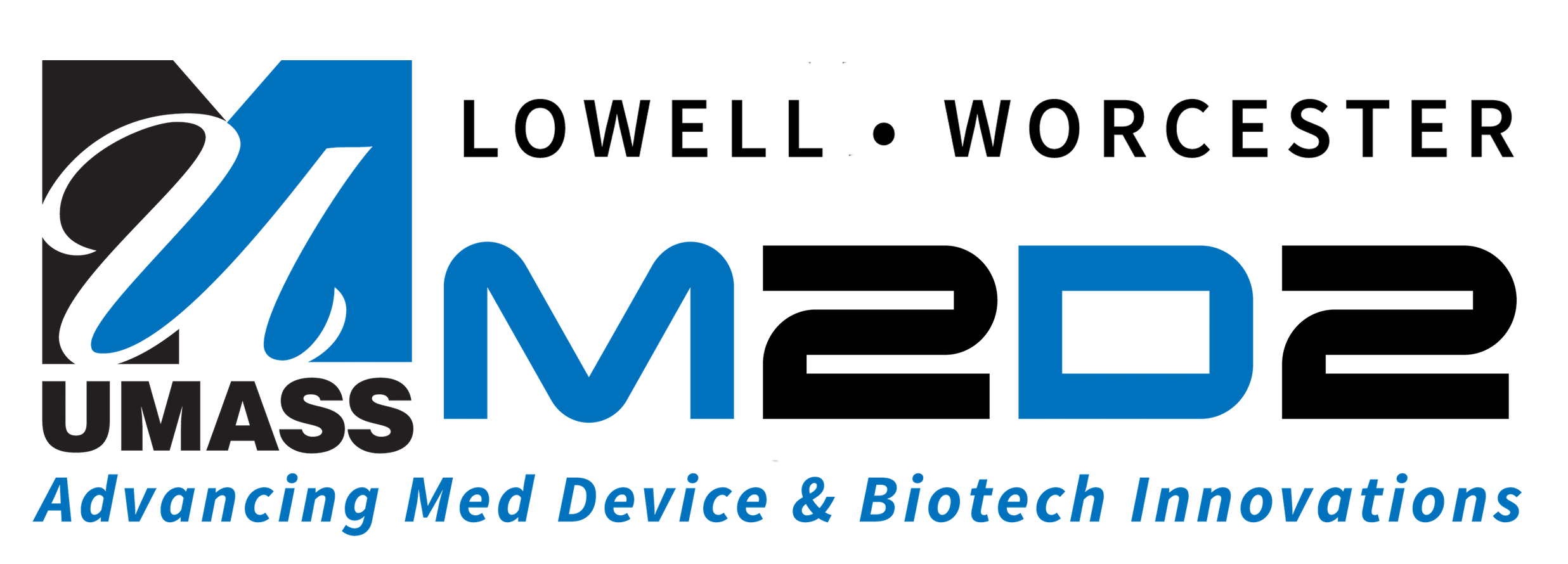Three Key members of the M2D2 team: (from left) Prof. Steven Tello of the UMass Lowell College of Management, Prof. Sheila Noone, Assistant Provost for Clinical Research; and K.C. Belaji, M.D., both from UMass Worcester.
In its first eighteen months of operation, the M2D2 (Massachusetts Medical Device Development Center) helped 23 start-up companies and entrepreneurs bridge the gap between invention and production of new medical devices.
Ten start-ups received funding. Five of those received matching funds under M2D2’s “fast-lane” program, and five gained federal funding with M2D2’s assistance. Both the “fast-lane” and federal grant assistance programs were supported primarily through competitive awards to M2D2 by the Massachusetts Technology Collaborative’s John Adams Innovation Institute.
"In this economic climate, there is a critical need for M2D2’s services to keep the pipeline of new medical device products flowing," says Stephen McCarthy, who co-directs M2D2. "Credit is tightening and private investors are even less inclined to support early-stage medical device companies than they were only a few months ago. M2D2 helps companies cross that 'Valley of Death,'" he added.
Fellow co-director Sheila Noone, Assistant Vice Provost for Clinical Research at UMass Worcester, says: “Both the Worcester and Lowell campuses are committed to helping grow the life sciences sector in the Commonwealth.”
UMass Worcester doctors and nurses provide M2D2-applicant entrepreneurs a medical screen while Lowell’s management college provides a business screen: hurdles companies must pass before receiving more direct M2D2 support.
"Companies come to M2D2. We give them a lot of advice, and that’s a valuable part of our charge," says M2D2 Steering Committee Chairman Hooks Johnston, former Senior Vice President at Smith & Nephew in Andover.
To date, 15 of the 23 M2D2-assisted companies have applied for the fast-lane program and received business and medical assessments as part of that process, and five of those were named fast-lane companies:
Aurora of Cambridge for a swelling hemostat to control bleeding from trauma.
Thomas Kottler’s VeinAid® LLC of Fairfield, Conn., which is developing an externally applied device to relieve the problems caused by varicose veins.
Christopher LaFarge’s MedicaMetrix of Wayland, for a "ProstaGlove" that would provide a quantitative rather than qualitative measurement of prostate volume.
Oz Technologies of Bay State Health Care in Springfield for a user-friendly pessary.
Smart Surfaces of Worcester for an ulcer prevention mattress.
M2D2-applicant-companies also received access to potential venture capital and angel investors at a recent Merrimack Valley Venture Forum- and M2D2-sponsored event showcasing their new medical device ideas. More than 150 attended the forum.
M2D2 has also helped eight additional start-ups apply for federal grants. Five were awarded. Grants awarded from the National Institutes of Health included a $1.2 million STTR fast-track grant to Dr. Tim Wu’s VasoTech Inc. of Lowell to further develop a biodegradable drug-eluting stent and two others totaling more than $800,000. An additional $200,000 was awarded from the DoD’s STTR program for two companies.
- Renae Lias
Read More:
M2D2 Makes Way For Medical Devices.
M2D2 awards $50K funding to medical device researchers.
For all the latest news, visit eNEWS.
